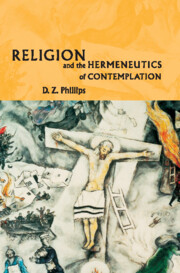Book contents
- Frontmatter
- Contents
- Preface and acknowledgements
- 1 Hermeneutics and the philosophical future of religious studies
- 2 Bernard Williams on the gods and us
- 3 Hume's legacy
- 4 Feuerbach: religion's secret?
- 5 Marx and Engels: religion, alienation and compensation
- 6 Tylor and Frazer: are religious beliefs mistaken hypotheses?
- 7 Marett: primitive reactions
- 8 Freud: the battle for ‘earliest’ things
- 9 Durkheim: religion as a social construct
- 10 Lévy-Bruhl: primitive logic
- 11 Berger: the avoidance of discourse
- 12 Winch: trying to understand
- 13 Understanding: a philosophical vocation
- Index of names
- Index of subjects
7 - Marett: primitive reactions
Published online by Cambridge University Press: 03 December 2009
- Frontmatter
- Contents
- Preface and acknowledgements
- 1 Hermeneutics and the philosophical future of religious studies
- 2 Bernard Williams on the gods and us
- 3 Hume's legacy
- 4 Feuerbach: religion's secret?
- 5 Marx and Engels: religion, alienation and compensation
- 6 Tylor and Frazer: are religious beliefs mistaken hypotheses?
- 7 Marett: primitive reactions
- 8 Freud: the battle for ‘earliest’ things
- 9 Durkheim: religion as a social construct
- 10 Lévy-Bruhl: primitive logic
- 11 Berger: the avoidance of discourse
- 12 Winch: trying to understand
- 13 Understanding: a philosophical vocation
- Index of names
- Index of subjects
Summary
MARETT AND ANTI-INTELLECTUALISM
In our discussion of philosophical objections to religion we have noted one fundamental distinction between the forms they take. On the one hand, in the Hume of the Dialogues, and in Tylor and Frazer, we have the view that religious beliefs are false. On the other hand, in the Hume of the Natural History, in Feuerbach, Marx and Engels, and in Williams' view of the gods of the Greeks, we have the view that religious beliefs are meaningless. On the former view, although religious beliefs are false, they could have been true. On the latter view, religious beliefs could not be true since they are the product of conceptual confusion, projection or ideological thinking. In the case of particular thinkers this distinction does not always remain clear-cut. I argued that Hume, in the Dialogues, does not press his logical objections as far as he could. Had he done so, religious beliefs would be more than a vague, unconfirmable hypothesis which atheists could agree with. They would be seen as logical blunders of various kinds which would not allow religious belief to be any kind of hypothesis at all. Similarly, although Frazer is consistent in thinking that religious beliefs are hypotheses which are finally toppled by the facts, Tylor's views are more complex. If we ask why the animistic hypothesis is framed in the first place, Tylor says that it is rooted in the mistake of thinking that an ideal connection, a connection in thought, is a connection in reality. That, however, seems more like a conceptual confusion than a mistake. Still, both emphases have influenced contemporary practice.
- Type
- Chapter
- Information
- Religion and the Hermeneutics of Contemplation , pp. 183 - 198Publisher: Cambridge University PressPrint publication year: 2001

